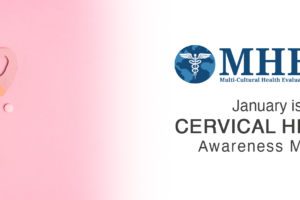Colorectal cancer screening saves lives.
What is Colorectal Cancer?

Colorectal cancer means that cells that aren’t normal are growing in your colon or rectum. These cells grow together and form polyps. Over time, some polyps can turn into cancer. This cancer is also called colon cancer or rectal cancer, depending on where the cancer is. It occurs most often in people older than 50.
Regular screening, beginning at age 45, is the key to preventing colorectal cancer (cancer of the colon or rectum). If you’re 45 to 75 years old, get screened for colorectal cancer regularly. If you’re younger than 45 and think you may be at high risk of getting colorectal cancer, or if you’re older than 75, talk to your doctor about screening.
Colorectal polyps and colorectal cancer don’t always cause symptoms, especially at first. That is why getting screened regularly for colorectal cancer is so important.
What Are the Symptoms of Colorectal Cancer?
Colorectal polyps (abnormal growths in the colon or rectum that can turn into cancer if not removed) and colorectal cancer don’t always cause symptoms, especially at first. Someone could have polyps or colorectal cancer and not know it. That is why getting screened regularly for colorectal cancer is so important.
If you have symptoms, they may include—
- A change in bowel habits.
- Blood in or on your stool (bowel movement).
- Diarrhea, constipation, or feeling that the bowel does not empty all the way.
- Abdominal pain, aches, or cramps that don’t go away.
- Weight loss and you don’t know why.
If you have any of these symptoms, talk to your doctor. They may be caused by something other than cancer. The only way to know what is causing them is to see your doctor.
Screening Test Options
Several screening tests can be used to find polyps or colorectal cancer, including some that you can do at home. Each test has advantages and disadvantages. Talk to your doctor about the pros and cons of each test, and how often to be tested.
Want to get a headstart on your health? Call MHEDS at 814-453-6229 (Peach Street) or 814-616-7730 (John F. Kennedy Center).
Our health information does not replace the advice of a doctor. Please be advised that this information is made available to assist the public in learning more about their health. MHEDS providers may not see or treat all topics found herein.








